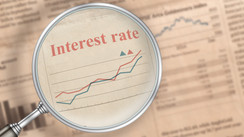Turkey's Central Bank Takes Bold Stand Against Inflation
On Thursday, the central bank of Turkey stunned financial markets by implementing a 500 basis point rate hike, bringing the total to 50%. This unexpected action came in response to a worsening inflation situation, with the bank's leaders revealing that further tightening measures could be undertaken if the prices are predicted to deteriorate drastically.
The Political Autonomy Signal
This unanticipated monetary move happened just a week-and-a-half before Turkey's national local elections. Analysts interpreted this as a testament to the central bank's immunity from political influences, and its commitment towards reining in the rapidly climbing inflation that is nearing 70%.
Following the announcement, the Turkish lira experienced an uptick of 2%, settling around 31.9 against the US dollar. This recovery ended weeks of consecutive declines, prompting Turkey's dollar bonds to rally as well.
Market Response to the Central Bank's Decision
Piotr Matys, an experienced FX analyst at In Touch Capital Markets in London, remarked that the market was "stunned" by the rate hike, which surpassed almost all predictions. He viewed this decision by Governor Fatih Karahan, who took over from Hafize Gaye Erkan following her unforeseen resignation, as a resolute determination to tackle surging inflation rates.
Since last June, the bank has elevated its critical one-week repo rate from 8.5% by 4,150 basis points, following a victorious election win by President Tayyip Erdogan in May and an ensuing reversal towards economic orthodoxy.
Future Central Bank Measures
The central bank asserted that its strict monetary stance would continue until there's a significant and consistent fall in the underlying trend of monthly inflation and convergence of inflationary expectations towards the predicted forecast. It further professed that monetary policy would tighten if a substantial and consistent deterioration in inflation occurs.
Goldman Sachs commented that the central bank's action seems to be a one-off adjustment to balance inflationary expectations rather than signalling the commencement of another tightening cycle.
Turkish Financial Challenges Ahead of Elections
Inflation escalated to an unexpected 67% during the previous month, as the central bank maintained stable rates after a series of hikes since June. While mid-year is set to usher in a moderate dip in inflation, expectations persistently remain high. This situation, coupled with diminishing foreign reserves and a dwindling lira, has raised the prospects of future rate hikes post the March 31 municipal vote.
Post-election, a more rigid fiscal policy is anticipated. This is likely to enhance credit costs and intensify economic hardships for Turks grappling with a longstanding cost-of-living crisis.





